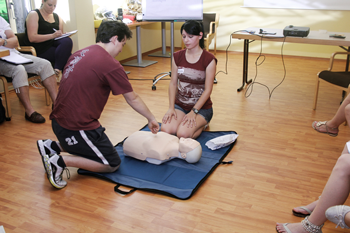It’s time for conventional medical experts to prove the science behind their купить сиалис в украине by demonstrating successful, nontoxic, and affordable patient outcomes. It’s time to revisit the scientific method to deal with the complexities of alternative treatments. The U.S. government has belatedly confirmed a fact that millions of Americans have known personally for decades – acupuncture works. A 12-member panel of “experts” informed the National Institutes of Health.
(NIH), its sponsor, that acupuncture is “clearly effective” for treating certain conditions, such as fibromyalgia, tennis elbow, pain following dental surgery, nausea during pregnancy, and nausea and vomiting associated with chemotherapy. The panel was less persuaded that acupuncture is appropriate as the sole treatment for headaches, asthma, addiction, menstrual cramps, and others.
The NIH panel said that, “there are a number of cases” where acupuncture works. Since the treatment has fewer side effects and is less invasive than conventional treatments, “it is time to take it seriously” and “expand its use into conventional medicine.” These developments are naturally welcome, and the field of alternative medicine should, be pleased with this progressive step.
But underlying the NIH’s endorsement and qualified “legitimization” of acupuncture is a deeper issue that must come to light- the presupposition so ingrained in our society as to be almost invisible to all but the most discerning eyes. The presupposition is that these “experts” of medicine are entitled and qualified to pass judgment on the scientific and therapeutic merits of alternative medicine modalities.
The matter hinges on the definition and scope of the term “scientific.” The news is full of complaints by supposed medical experts that alternative medicine is not “scientific” and not “proven.” Yet we never hear these experts take a moment out from their vituperations to examine the tenets and assumptions of their cherished scientific method to see if they are valid.
Medical historian Harris L. Coulter, Ph.D., author of the landmark four-volume history of Western medicine called Divided Legacy, first alerted me to a crucial, though unrecognized, distinction. The question we should ask is whether conventional medicine is scientific. Dr. Coulter argues convincingly that it is not.
Over the last 2,500 years, Western medicine has been divided by a powerful schism between two opposed ways of looking at physiology, health, and healing, says Dr. Coulter. What we now call conventional medicine (or allopathy) was once known as Rationalist medicine; alternative medicine, in Dr. Coulter’s history, was called Empirical medicine. Rationalist medicine is based on reason and prevailing theory, while Empirical medicine is based on observed facts and real life experience – on what works.
Dr. Coulter makes some startling observations based on this distinction. Conventional medicine is alien, both in spirit and structure, to the scientific method of investigation, he says. Its concepts continually change with the latest breakthrough. Yesterday, it was germ theory; today, it’s genetics; tomorrow, who knows?
With each changing fashion in medical thought, conventional medicine has to toss away its now outmoded orthodoxy and impose the new one, until it gets changed again. This is medicine based on abstract theory; the facts of the body must be contorted to conform to these theories or dismissed as irrelevant.


